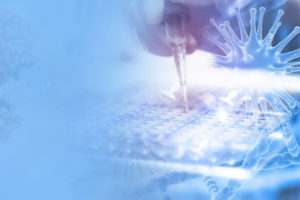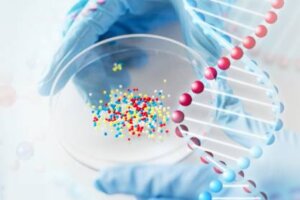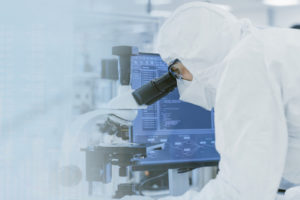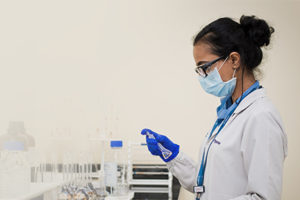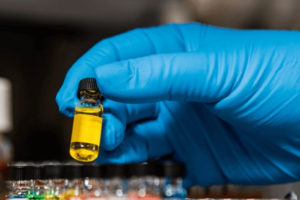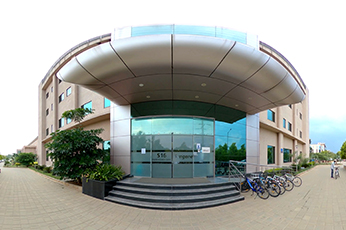The unexpected finding of nitrosamine impurities, which are probable human carcinogens, in pharmaceuticals such as angiotensin II receptor blockers (ARBs), ranitidine, nizatidine, and type 2 anti-diabetic medication, resulted in large-scale recall of these drugs. Consequent to this finding, the FDA, in collaboration with regulatory counterparts around the world, issued guidance to API and drug product manufacturers on appropriate actions they need to take to detect and prevent unacceptable levels of nitrosamine impurities in pharmaceutical products (Source: Control of nitrosamine impurities in human drugs: Guidance for industry).
As a leading CRO/CDMO, Syngene offers nitrosamine risk assessment and conformity testing services through its Nitrosamine Impurity Testing Center of Excellence in compliance with regulatory guidelines.
Carcinogenic nitrosamines impurities are formed when secondary amines, amides, carbamates, and derivatives of urea react with nitrite or other nitrogenous agents along with the nitrogen in the +3 state. Nitrosamines are classified by the ICH M7(R1) Guideline as Class 1 Impurities, “known mutagenic carcinogens,” based on both rodent carcinogenicity and mutagenicity data. They are categorized by the International Agency for Cancer Research (IARC) as 2A – probable cancer nitrosamines based on data on several species’ studies. The list of nitrosamines are published in USP<1469> and European Pharmacopoeia General Chapter 2.5.42.
Root causes for the presence of nitrosamine in drug products
N- Nitroso compounds are listed as Class 1 mutagens in ICH M7: Assessment and Control of DNA reactive (Mutagenic) Impurities in Pharmaceuticals to Limit Potential Carcinogenic Risk (1). ICH M7 also includes N-nitroso compounds in the cohort of concern, a designation that carries with it a recommendation to control the impurities at or below the acceptable cancer risk. In addition, some N-nitroso compounds are listed as Class 2 compounds.
In acidic conditions, secondary or tertiary amines react with nitrites to form nitrosamines. There are several pathways by which nitrosamines can be introduced into or generated as impurities in pharmaceutical drug products. There is evidence that despite processing and purification steps, reactive species, whether intentionally added to or formed during the process/reaction sequence (e.g., nitrites and secondary amines in acidic conditions), can carry over to subsequent steps. Hence, special attention should be given to the formation of nitrogen-containing heterocycles by employing azide followed by quenching with nitrile to remove excess azide. The API itself, which may degrade under some conditions, can also form nitrosamines dialkyl amines.
Some other causes of nitrosamines impurities are as follows:
- Impurities in raw materials, solvents (including recycled solvents) and reagents or catalysts
- Impurities in materials and intermediates, reagents, and solvents used to prepare the starting materials or intermediates
- Impurities in water, excipients, or processing aids used in the production of the finished drug product
- Impurities in the container-closure system for the finished drug product may include impurities capable of forming nitrosamines, especially if associated with materials containing amines and potential sources of a nitrosating agent (e.g., nitrite, nitrocellulose)
Syngene’s Nitrosamine Impurity Testing Center of Excellence
Syngene offers a state-of-the-art facility for risk assessment, development, and validation of nitrosamine impurities in drug substances and drug products. The facility supports formulation requirements for small molecule APIs, key sourcing materials (KSM), and intermediates. Its internationally accredited Analytical labs and highly skilled scientists ensure all the data generated complies with regulatory requirements.
Key features
- Diverse experience in risk assessment, method development, method validation, and testing of nitrosamine impurities in drug products, drug substances, KSM, and intermediates
- All methods developed and validated according to USP General Chapter <1469> in line with current scientific and regulatory approaches. This ensures appropriate control over nitrosamine impurities in APIs and drug formulations
- Availability of skilled workforce, including those with expertise in nitrosamine impurity testing
- Availability of sophisticated nitrosamine analysis instruments such as LC-MS/MS, GC-MS/MS, and HRMS to quantify impurities at the ppb level as per regulatory requirements
- All nitrosamine testing conducted in cGMP labs audited by multiple regulatory agencies
Capabilities & Highlights
- Dedicated area for nitrosamine and azido impurity testing
- Characterization of nitrosamine and azido impurities
- All methods as per regulatory requirements
- Risk assessment report based on the root of synthesis
- Faster turnaround on method development and validation analysis
